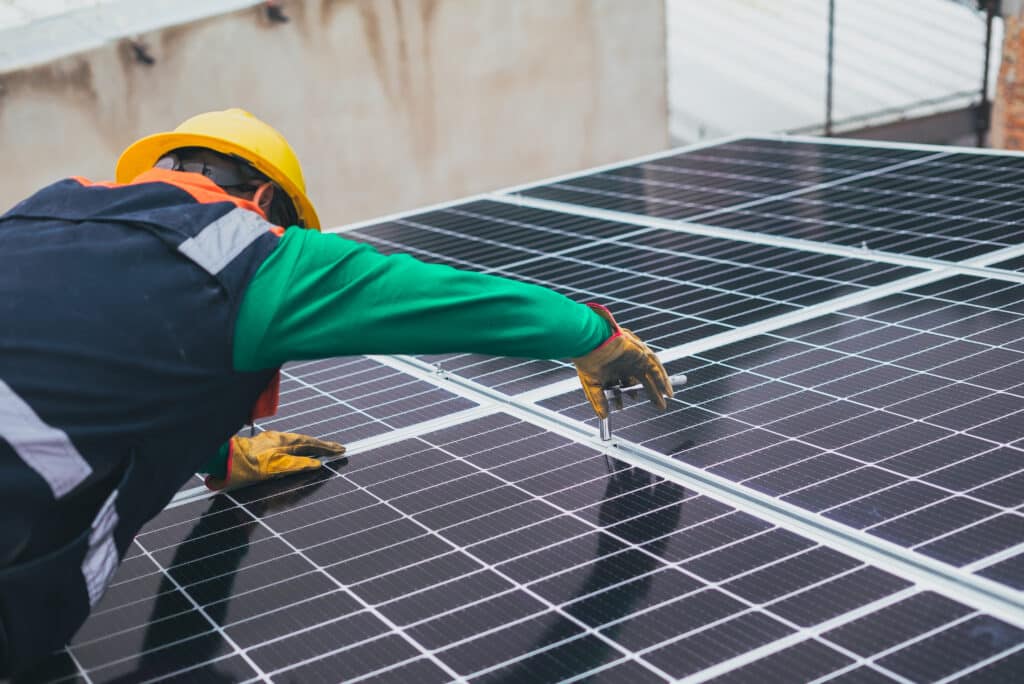Approximately one in four employees, estimated to number 122,315 people, are expected to work in sectors contributing to the green economy, according to Cyprus’ Human Resource Development Authority (HRDA).
The European Union (EU), through its European Green Deal, has set ambitious targets that include implementing policies and measures to achieve climate neutrality by 2050.
A key condition for meeting these targets is having a suitably skilled workforce equipped with the necessary knowledge and skills.
Recognising the significance of the transition to a green economy and its impact on the job market, the HRDA has developed a study titled “Identification of Needs in Green Jobs and Skills in the Cypriot Economy 2024-2030”.
The main purpose of the study is to provide a comprehensive examination and analysis of the green economy and green jobs, offer forecasts for employment and needs in green economic sectors and professions, and identify the demand for green skills for the period 2024-2030.
According to the HRDA, Cyprus must achieve significant national goals to meet the targets of the European Green Deal.
These include reducing greenhouse gas emissions, improving energy efficiency and the penetration of renewable energy sources, and ensuring comprehensive waste, wastewater, and water resource management.
It should be noted that despite the efforts and projects currently underway, there is considerable room for improvement, as Cyprus remains lagging compared to other EU countries in achieving these goals.
Major challenges include waste management, low recycling rates, energy efficiency, new-generation energy infrastructure, sustainable transport, the management of dwindling water resources, sustainable agriculture, and reducing greenhouse gas emissions.
Moreover, addressing these challenges successfully will enhance competitiveness and stability, making the economy more resilient to future risks and challenges.
According to the European Statistical Office (Eurostat), the green economy encompasses all activities that produce goods and services for measuring, preventing, limiting, minimising, and correcting environmental damage to water, air, and soil, as well as issues related to waste, noise, and ecosystems.
The green economy includes technologies, goods, and services that reduce environmental risks and minimise pollution and resource use.
In Cyprus, employment in green economy sectors constitutes a notable portion of total employment, increasing from 23.7 per cent in 2024 to 24.2 per cent in 2030.
This means that by 2030, 122,315 people, corresponding to approximately one in four employees, will work in green economy sectors.
The annual total demand for green energy sectors is estimated at 3,125 people, a share of 2.7 per cent of all new job openings.
This corresponds to 24.8 per cent of the total employment needs across all sectors in Cyprus.
The largest number of employees in green sectors will be in professional, scientific, and technical activities.
Furthermore, nearly one in three green economy employees will work in this sector, which also has the highest annual total employment needs, estimated at 873 people, a share of 2.3 per cent, during the 2024-2030 period.
The second-largest green sector, showing a significant growth trend, is information and communication.
This sector is expected to continue its substantial growth, with over one in six green economy employees working in this area.
The annual total employment needs in this sector will amount to 808 people, a share of 4.1 per cent, with developmental needs (648 people) constituting the majority (80.2 per cent).
What is more, graduates will form the largest category among green economy professionals.
This category will have the highest annual total employment needs during 2024-2030, amounting to 1,528 people, a share of 3.4 per cent, with developmental needs making up the largest portion (72.5 per cent).
Significant employment needs will also arise for craftsmen, the second-largest professional category. The annual total employment needs for this category during 2024-2030 will be 690 people, a share of 2.3 per cent, with the needs due to departures (359 people) being slightly higher than developmental needs (331 people).
A crucial condition for achieving the goal of transitioning to a green economy is equipping the workforce with the necessary knowledge and skills, the authority explained.
It added that it is equally vital to foster a development mindset and lifelong learning, so that the workforce continually upgrades and enriches both general and specialised knowledge and skills.
To this end, the study identified the main thematic areas of knowledge and skills in green economy professions that can be utilised in designing specialised training activities.
The majority of identified green skills are new and related to acquiring skills for new green technologies, environmental legislation, and environmental issues.
These skills evolve continuously due to various influencing factors and require a high degree of specialisation.
A significant number of the identified green skills are adapted existing skills, considered crucial for the development of the green economy, such as project management, strategic planning, entrepreneurship, process optimisation, personnel management, and quality management.
The study concluded with specific recommendations aimed at timely and planned responses to the future state of the labour market due to the transition to a green economy. The recommendations cover employment, education, and training strategies.
Essential elements for implementing and ensuring the effectiveness of these recommendations include synergy and complementarity of policies: environmental, economic, social, education, training, and employment policies.
For this reason, the HRDA underlined the need for a cohesive framework for cooperation and coordination among the bodies responsible for shaping and implementing these strategies, to ensure maximum effectiveness and minimal cost in economic and human resources.







Click here to change your cookie preferences